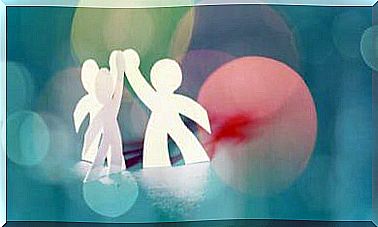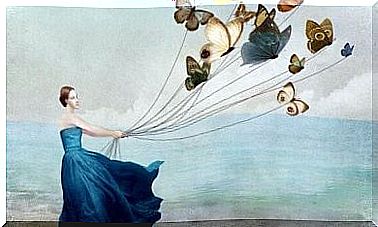Social Chameleons: People Who Change According To Circumstances

Social chameleons are the champions when it comes to making a good impression. To do this, they do not hesitate to practice that type of emotional commercialism where they hide their own feelings, thoughts and opinions in order to be accepted and get the approval of others. It is a type of practice that causes, of course , serious side effects on one’s dignity.
It is very likely that many of our readers remember a curious Woody Allen movie called “Zelig. ” In it, the protagonist presents a curious supernatural ability: he is able to change his appearance completely to adapt to whatever environment he is in. Finally, a young psychoanalyst realizes Leonard Zelig’s real problem, namely, his extreme insecurity leads him to camouflage himself among people to feel accepted, integrated.
This is undoubtedly an extreme case, a fun audiovisual reflection that Allen took to the movies to talk about psychology, identity problems and our society. However, there is one fact that we cannot ignore: we are all, in a certain way, social chameleons.
Showing ourselves as we are, without any fissures and with total transparency is not always easy. We fear “what they will say”, we are afraid of disappointing, attracting attention or even not being what others expect of us. Living in society forces us to fit in, we all have it clear. However, it is important to remember that the key is to learn to be people, not characters. Being a person means knowing how to respect others with their nuances, their opinions, their virtues and rarities. It also supposes being able to practice that honesty where we do not dilute our identity and values in exchange for being accepted.
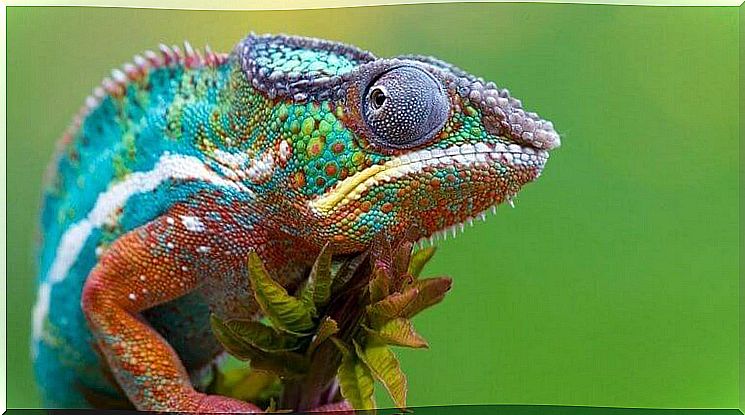
Social chameleons and the psychological cost
Mark Snyder, a well-known social psychologist at the University of Minnesota, is an expert in studying this universal need to be socially accepted. An interesting aspect that it reveals to us in the first place is that social chameleons are tremendously unhappy people. Let’s think about it for a moment, imagine someone who forces himself to be like those around him every day.
To achieve this, you will have to get used to thinking and feeling one thing and doing the opposite, to bad life enters the constant contradiction, to oscillate between the private face and the public mask, to laugh when you do not feel it, to lie compulsively … This behavior almost addictive where always making a good impression rarely succeeds in establishing lasting and satisfying bonds. What’s more, what it causes in many cases is true psychological exhaustion.
We cannot forget that, in order to “mimic” itself, the social chameleon must be attentive to the social codes of each context. He must observe, read the implicit and explicit languages, he must imitate, but above all, he must show an extraordinary plasticity with which to always be highly convincing.
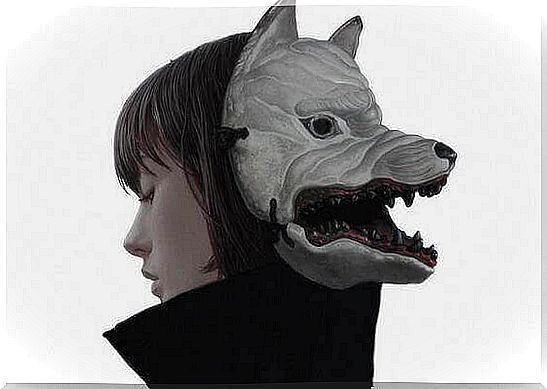
Being the right person at all times also requires us to always be in tune with the way in which others react, hence they constantly monitor their social performance, adjusting it to obtain the desired effect. As we can deduce, the wear that all this supposes in the short and long term is immense.
Social chameleons or social zebras, the choice is yours
There are professions for which, whether we like it or not, this type of chameleonic skills are needed with which to create impact, with which to seduce, attract clients, generate trust and even, why not, even manipulate. Thus, jobs such as politics, law, the world of marketing and advertising, theater or diplomacy require those psychological juggling where mimicking is synonymous with survival and even triumph.
As we pointed out at the beginning, all of us, in a certain way, have been forced to be social chameleons at some point. However, specialists in this field, such as Dr. Mark Snyder, tell us that if we really want to have authentic emotional health, wisdom and balance, we should learn to be “social zebras”.
No matter where a zebra is, no matter who or what it has by its side, they will always be the same, their stripes will not change at any time. This supposes, of course, being an easy target for predators and as we already know, in our social contexts there are also them. Thus, our “stripes” may not like, that our skin, our style, character and tone of voice do not please everyone, but the few who are captivated by our authenticity and curious nuances will be our best allies.
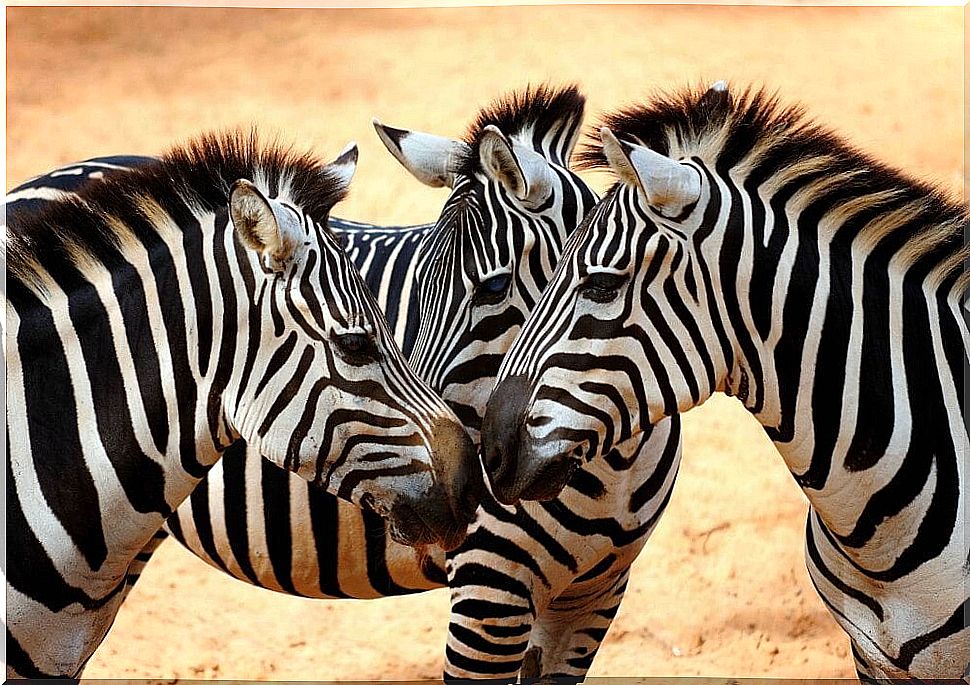
To conclude, few things can be as fruitless and exhausting as being liked by everyone, such as being that piece that can fit into every puzzle or that nut that goes for every gear. Such ability is neither credible nor healthy. Let’s learn to live without masks, to be consistent and brave, unique and exceptional creatures with each of our “stripes”, of our fabulous coats …
